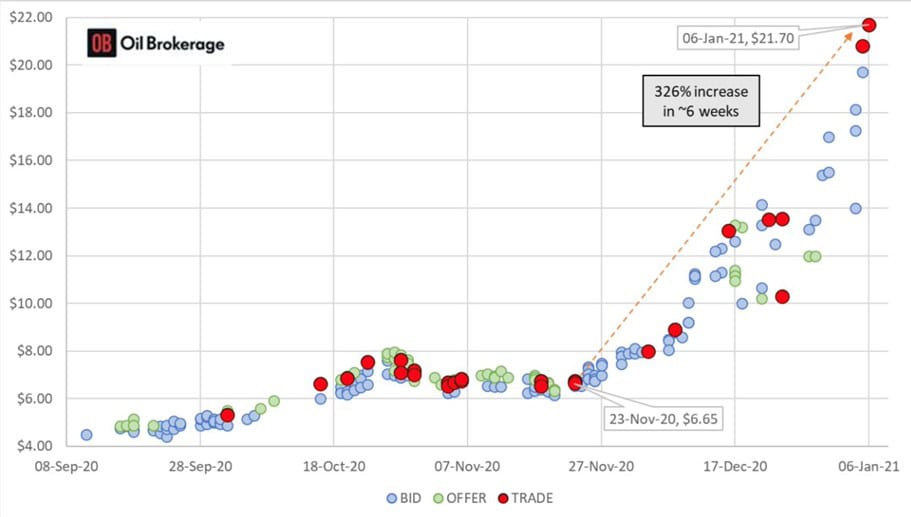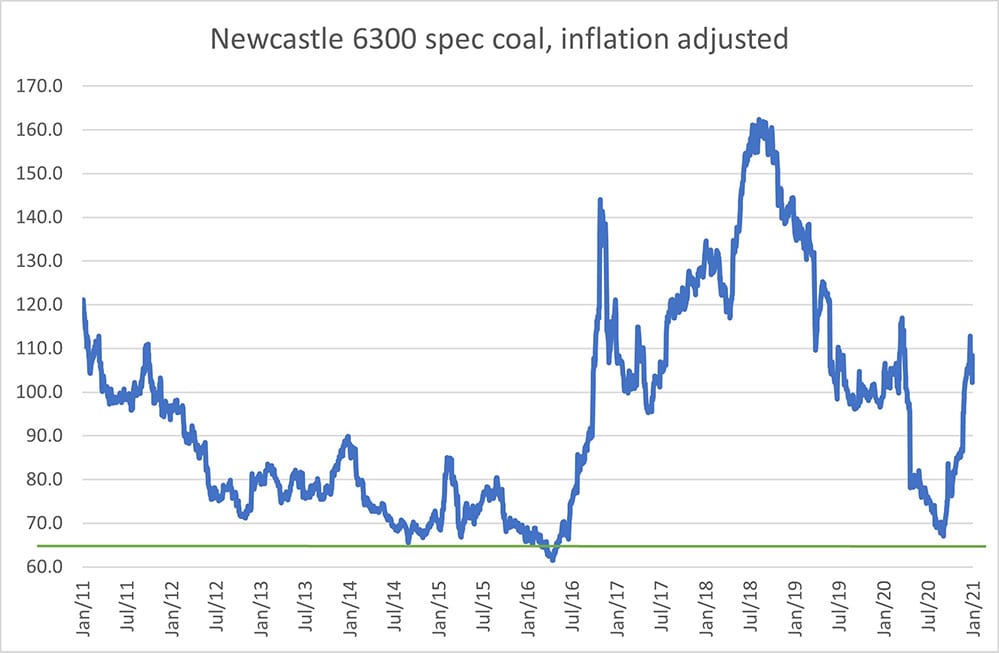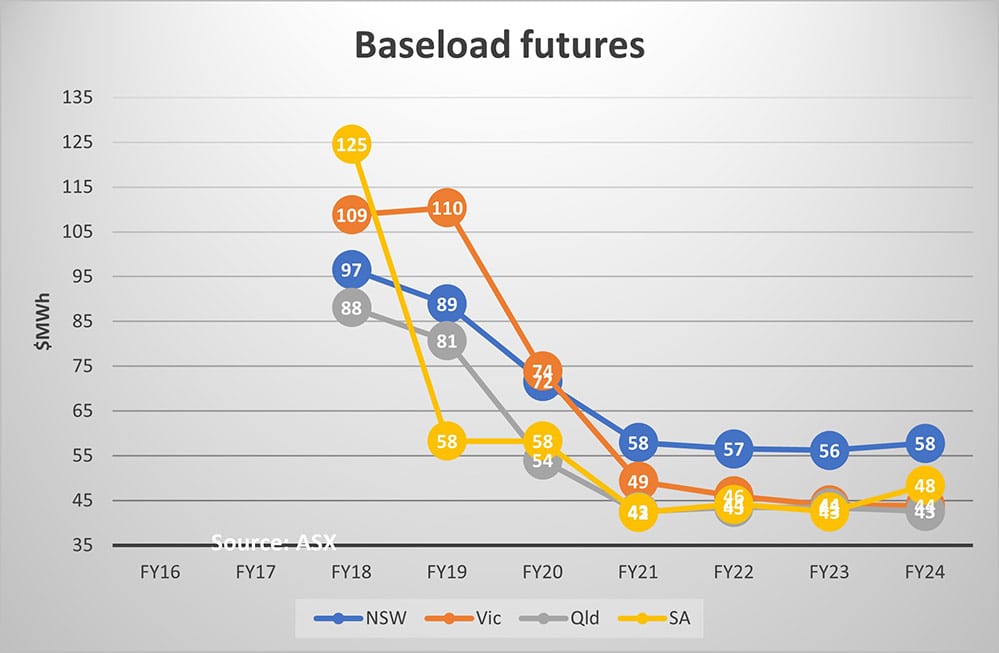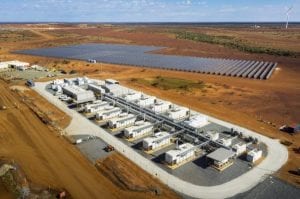Here at ITK we are forever telling people to expect the unexpected when it comes to commodity prices. And forever it’s a case of do as I say, rather than do as I do.
Everyone had been expecting a rebound in gas prices somewhere along the line but not the explosion in LNG spot prices that has occurred just recently.

In the space of ten weeks, the LNG spot price has gone from around US$7/MMBTU to US$22/MMBTU – and since the graph above was made, there are reports of even higher prices.
As usual there are multiple causes, but the simple explanation is that it has been a cold winter in the Northern Hemisphere and there is also a lack of transport capacity.
Equally, thermal coal prices are also through the roof. Japan spec (ie best quality) thermal coal at Newcastle is around US$80/t and it is as if Covid never happened.
At US$80 per tonne, coal is above the long term price of US$70 -US$75 per tonne that we here at ITK think is required to justify a new mine in Australia. That is ignoring all carbon risk but factoring in the difficulty of getting a permit.
The chart below is inflation adjusted and in A$ to give a longer term perspective. The chart illustrates the unlikelihood that anyone could forecast price. In real terms the price declined more or less steadily for fiver years before doubling in one year etc. For that reason analysts usually forecast the long term price based on an estimate of what a new entrant would require over the life of the project to justify investment.
The essential assumption is that demand is growing. And it still is but in 2020 likely only very marginally. And ITK forecasts/hopes/believes that within a few years global coal consumption will be declining. That will lead to lower prices.

Implications
There are several points to make about the unexpected rise in commodity prices.
Firstly what impact will it make on electricity prices. So far the answer is very little but you’d expect a lag. Gas and coal contracts are generally contracted forward for the most part. Spot prices indicate the direction of contract prices and so they are leading indicator. The point is its too early to tell what the impact on electricity prices will be. Recall that mainstream opinion is that gas prices drive electricity prices.
ITK’s view is that may once have been true, to some extent, but its less and less likely to be correct going forward. If the gas price stays high we will have an empirical test. In fact spot prices in Australia have yet to reflect the international price in any meaningful way.

And both spot and baseload futures signal a benign for consumers price outlook:

Partly because weather driven operational demand has started the year very slowly:

Secondly it will support the competitiveness of wind and solar against thermal generation.
Thirdly it reemphasizes one of the main virtues of wind and solar relative to coal and gas from a consumer context – That the cost is fixed and known, at least prior to marginal loss factor and transmission shocks. The cost of gas and coal unless you contract very long or have captive production is uncertain and must be reflected in a higher cost of capital.
Even if you do contract long, that very length of contract also raises your cost of capital because you are now exposed to new entrants that may have unexpectedly low costs.
Fourthly, over the past year or two as USA gas prices have crashed, we have a small number of disproportionately influential large gas consumers call for the Australian gas price to be linked to the international price. Expect those people to now say “we didn’t mean the spot price”, if they say anything at all.









